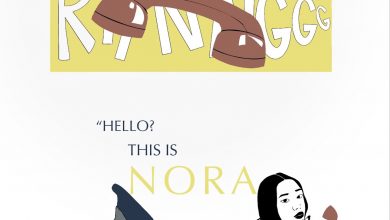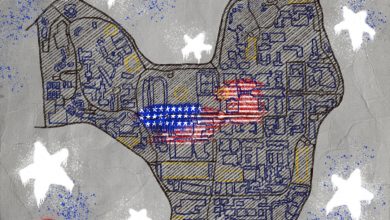Body Shaming: Do I Practice What I Preach?
As a feminist, I’m always exploring issues surrounding body image, unattainable beauty standards, and self love.
Learning to love yourself as you physically are, flaws and all, is the most empowering and liberating experience.
One of my all-time favorite quotes is “be your own kind of beautiful.” That quote resonates with me because it reminds me that there isn’t one single standard of beauty we should all be striving for. Rather, we should love ourselves as we are and embrace the unique type of beauty we all encompass. It’s innate and it’s in all of us. We just have to know it and own it!
Sadly, it has been so much easier said than done in my personal experiences.
When friends are feeling unpretty, I can be the best dang motivational speaker in the world, reminding them that what they see in the media isn’t the only type of beauty that exists. Just because they weigh a little more or a little less, just because their hair isn’t of a certain texture, just because their complexion isn’t the most sought after, it doesn’t mean they aren’t beautiful.
The women’s fitting room is one of the prime places body shaming takes place.
- “Do these jeans make my butt look big?” Yeah, so what?
- “Does this dress hug my stomach too tightly?” Yeah, and?
- “Are these shorts too short? They show my cellulite.” Who cares?
No, seriously though. Who cares?
Do you really care about people who take time and energy to asses your body and judge it for not looking a certain way? Are these types of people with such shallow mentalities really worth your approval in the first place?
You are worth so much more than how you look physically. You should be defined by your morals, values, intelligence, ambition, and character.
But despite all of this motivational talk, I still find myself regressing sometimes. Nobody’s a harsher critic of my body than I am. When I look in the mirror, I don’t love how I look every single day. There are days when I’m feeling down, when I wish I were skinnier, taller, less busty, had better skin, longer hair, bigger eyes, smaller nose, etc.
I tear myself apart sometimes. The things I say to myself in my head are some of the meanest insults. And when I stop to think about it, if anybody else spoke to me the way I spoke to myself, they’d be my worst enemy. So how can I allow these thoughts to run through my head?
It’s like I’m my own best friend and worst enemy at the same time. It’s a paradox. It’s unsettling. It’s confusing.
I tell myself “you should know better.”
On days when I really feel low, my mean thoughts can bring me to tears sometimes. It’s those terrible thoughts that keep you up late at night.
It’s natural to feel unfulfilled sometimes. I don’t have to be superwoman feminist Eidah 24 freakin’ 7. It’s okay to feel vulnerable. It’s okay to not feel good enough sometimes. As one of my favorite singers Jessie J puts it, “it’s okay not to be okay.”
The important thing is to not let these thoughts consume you. When you get to the point where the only thing you think about is your appearance and it defines your every single action, it’s best to seek help.
Always know that you’re not alone.
Women and men alike experience body image issues. It’s the media that’s trying to convince you that this is what an attractive guy looks like and this is what a beautiful girl looks like and if you don’t look like that, something is fundamentally wrong with you.
It’s feminism that is trying to teach you to challenge the status quo and to know that regardless of whether you fit that standard, as unattainable as it may be, you are still beautiful and desirable.
Women and men suffer in this regard in similar ways. A man is trained to believe that being attractive means being tall and buff, and having flawless facial hair. I would argue that women have to jump through a lot more hoops to be considered beautiful according to media standards.
As Tina Fey puts in her book, Bossypants:
“Every girl is expected to have Caucasian blue eyes, full Spanish lips, a classic button nose, hairless Asian skin with a California tan, a Jamaican dance hall ass, long Swedish legs, small Japanese feet, the abs of a lesbian gym owner, the hips of a nine-year-old boy, the arms of Michelle Obama, and doll tits. The person closest to actually achieving this look is Kim Kardashian, who, as we know, was made by Russian scientists to sabotage our athletes.”
It’s hard to look like the women in the magazines when even the women in the magazines don’t look like the women in the magazines.
With photoshop, airbrushing, and heavy use of makeup, women become the ultimate object decorated for consumer purposes. Through this behavior, we desensitize people and create a society that begins to internalize these messages.
Ultimately, American beauty ideals are Eurocentric. Women of color can take the hit extra hard and doub their beauty because it doesn’t fall in line with the Eurocentric ideal.
Social experiments have been conducted in which a black doll and white doll are placed before black children and they are asked a series of questions ranging from “which doll is the nice doll?” to “which doll is the pretty doll?” The results are sickening. In almost every instance, these black children attribute positive features to the white doll and negative features to the black doll.
But that shouldn’t come as a surprise when media is implicitly sending the message that white is most desirable. Being tall, skinny, with long, straight blonde hair, blue eyes, and light skin is overrepresented while curves, curls, dark skin, and brown eyes is underrepresented.
When certain groups are underrepresented, they are seen as less ideal. They become rare, exoticized, and othered.
On a taxi drive home one night, I had the very uncomfortable experience of being told I was “beautiful in an exotic way.” After explaining the encounter with a friend, I was told that I should be flattered and that being called exotic is a compliment. “It means you have a different type of beauty that isn’t mainstream,” my friend said.
It’s actually incredibly problematic and frankly, it’s insulting. Why ISN’T my type of beauty seen just as validly beautiful as anybody else’s? Why ISN’T my type of beauty mainstream? When somebody calls me exotic, it’s almost as if they’re surprised that I can not have Eurocentric beauty and still be beautiful, as if I broke the rules of what is considered normally beautiful and defied the odds.
It goes to show how underrepresented people of color are in the media. Where are my beautiful Arab models at?
And you know what’s even more problematic? When there are those rare instances of people of color being represented in the media, they’re white-washed. For example, American ideals seem to claim that light skinned black women are more desirable than dark skinned women, and they are still expected to be super tall and thin instead of embracing natural curves. Sleek, straight hair is favored over curly hair or natural fros.
Being able to understand how and why a certain beauty standard is the most ideal is the first step in working to redefine beauty.
Understanding that there is no such thing as a beauty standard or ideal and that every person is beautiful in their own way has helped me embrace my body the way that it is.
In this journey of self love, there will undoubtedly be bumps in the road. There will be times when I feel like a hypocrite and when I feel like I’m not practicing what I preach. But in the long run, these moments of self doubt have helped me grow and discover myself in a new way. It’s in those moments of pure, beautiful vulnerability where I have forced myself to stare my “flaws” in the face and come to find that in the end, they’re not really flaws after all.




